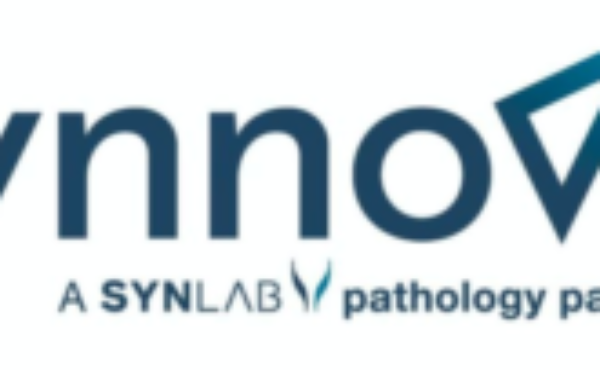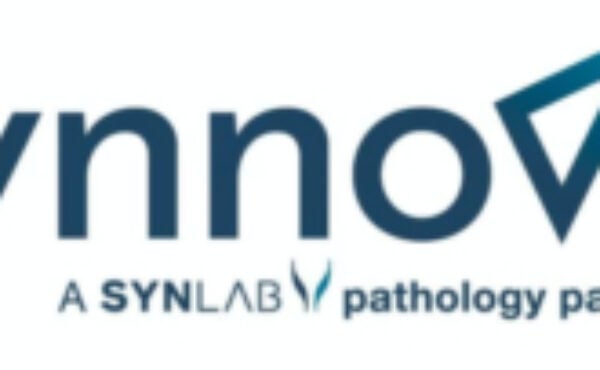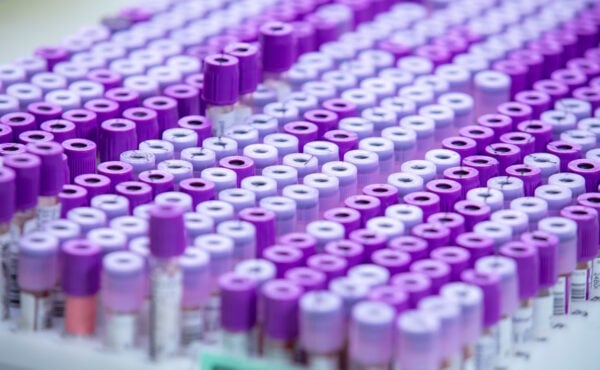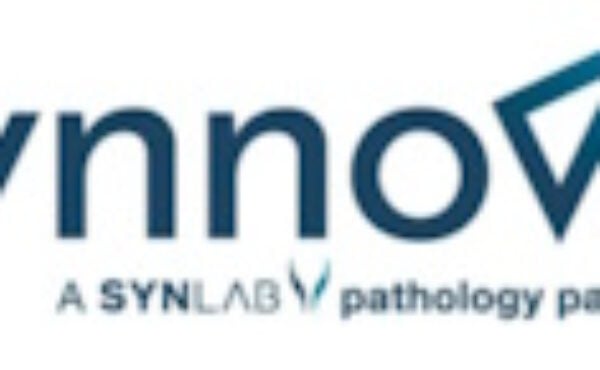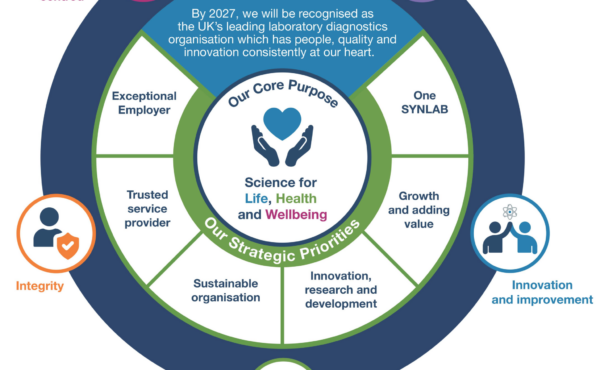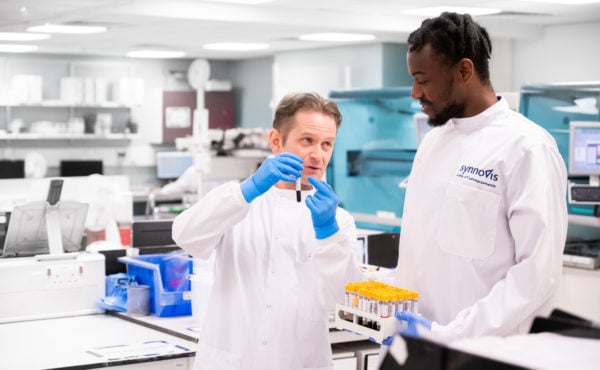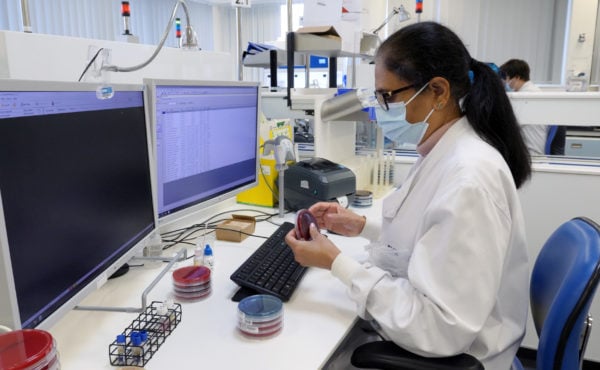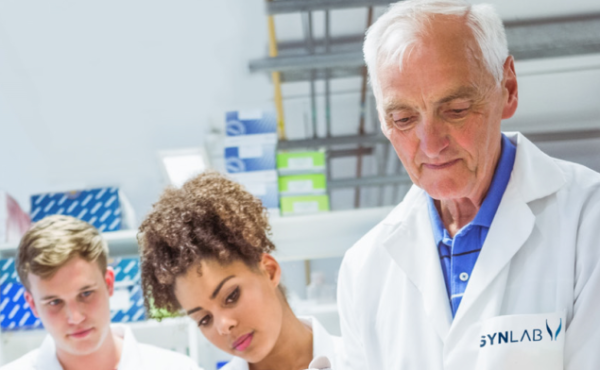Introducing the SYNLAB Healthcare Science Apprenticeship Scheme
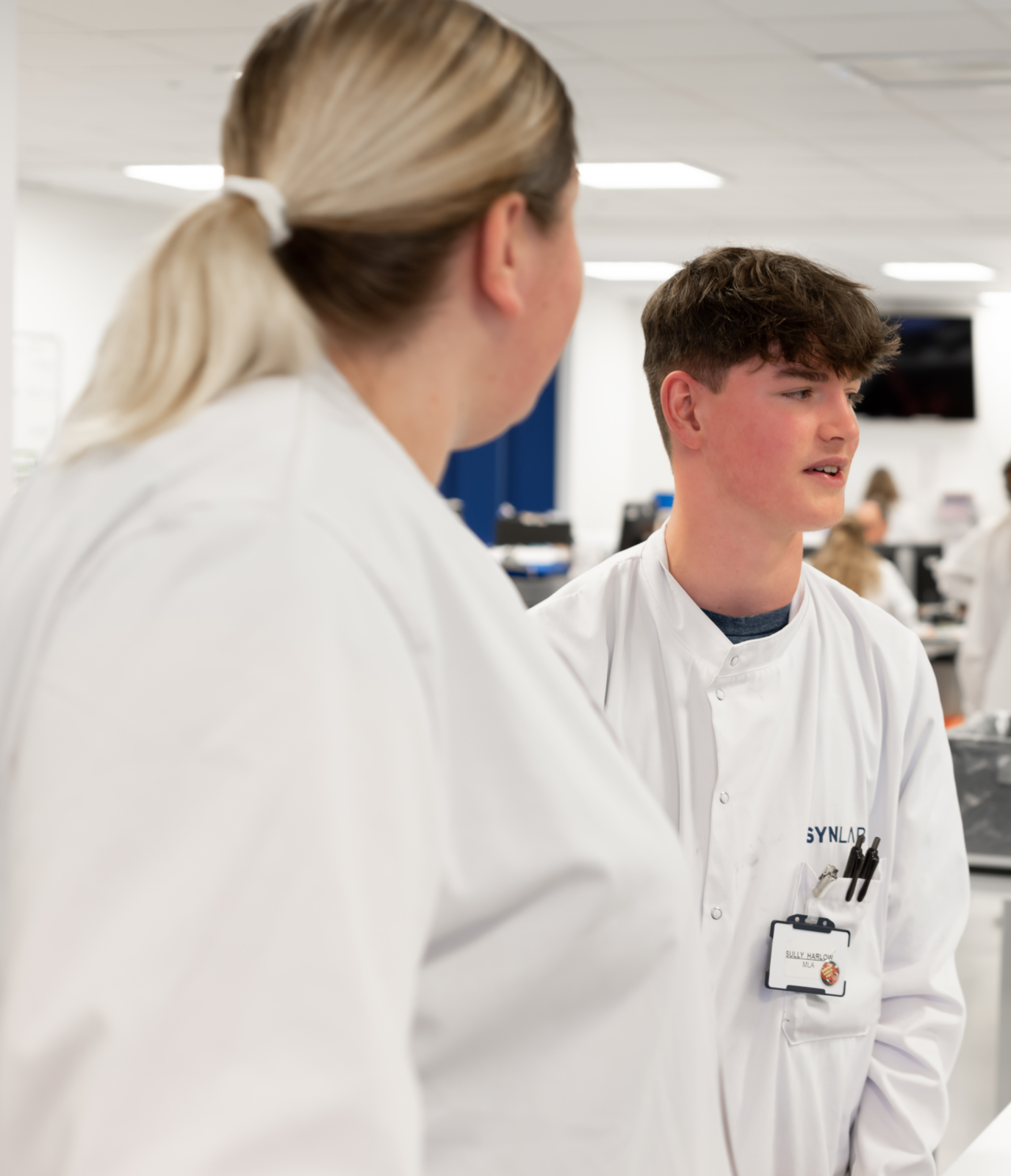
The Healthcare Science Apprenticeship Scheme is one way in which we facilitate ongoing career development.
The programme is open to anyone who meets the necessary course criteria, be that through A-levels, equivalent qualifications or an apprenticeship in another scientific discipline.
We also support other scientific apprenticeships from Level 3 laboratory technicians upwards as well as a range of non-scientific apprenticeships in the areas of IT, HR, business admin, project management, quality, digital and data, sustainability and management apprenticeships from team leader to senior leader.
All our apprentices benefit from a combination of theoretical learning, opportunities for hands-on learning and support from experienced professionals within their working team.
Read some of our apprentices’ stories:
From the National Gallery to St John’s Institute of Dermatology: Dionne Kirk
It hadn’t always been Dionne’s ambition to follow a career in biomedical science. Having achieved a degree in Classical Studies, Dionne spent six years at the National Gallery before starting work at Central Specimen Reception at St Thomas’ hospital in London. From here she moved into an Associate Practitioner role at St John’s Institute of Dermatology.
When Dionne joined SYNLAB she really enjoyed her work and wanted to pursue a career in the field, but the lack of a relevant qualification meant that she couldn’t progress any further than a Medical Laboratory Assistant. However, stopping work to study was not financially viable.
For Dionne, the Healthcare Science Apprenticeship Scheme was an ideal option as it allowed her to both work and study for a qualification which would enable her to progress in the career she loved.
Dionne’s Journey
For Dionne, it was her colleagues who left the most lasting impression on her apprenticeship journey and highlighted the intrinsic value that can come from completing a work-based qualification.
All of my colleagues in my laboratory have been incredibly supportive during my degree. I’ve been comfortable asking them questions for clarification and for help when necessary, and I’ve learned a lot from the more experienced staff members. There were a lot of small details I didn’t know that my colleagues were happy to explain, and some advanced things I hadn’t had any hands-on experience with that they took the time to explain to me.
Studying and gaining an education at the same time as working meant that Dionne was able to see the practical uses of what she was learning, reinforcing it in her mind.
Support from SYNLAB
When Dionne raised concerns about managing her workload, SYNLAB worked in unison with her learning advisor to ensure she was getting the relevant support. An aspect of the apprenticeship scheme is that apprentices can dedicate 20 per cent of their working hours to studying, on-the-job learning and other developmental activities.
This support was invaluable during my study time
| Top tips from Dionne: * The juggling of work and study is so worth it – work closely with your team to plan your time. * Complete your registration portfolio alongside your degree. That way, as soon as you graduate you are registered. |
So, what’s next…?
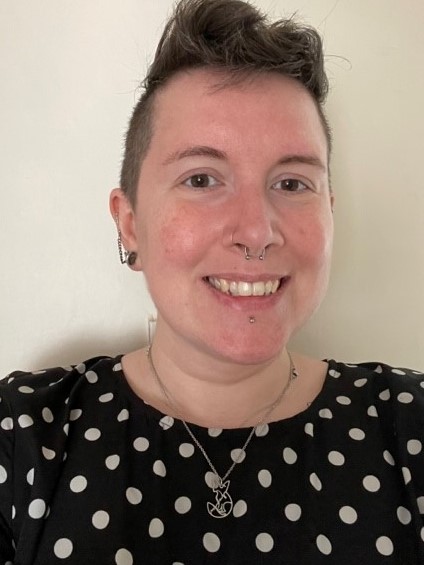
I’d like to be promoted to a biomedical scientist position in my laboratory. Long term, I would like to do my specialist portfolio and become a specialist biomedical scientist.
A career in finance just didn’t add up: Emmanuel Folurunsho
Science was not always a subject that Emmanuel was drawn to. While at school, finance and accounting seemed more appealing – and it was in these disciplines that he achieved his first degree.
Following a career change and upon beginning a role as a Medical Laboratory Assistant (MLA), Emmanuel’s passion for science – and in particular healthcare – was awakened.
Emmanuel soon began looking for ways to grow in his role and it became clear would need another degree qualification. However, taking time out of work to study wasn’t possible due to family commitments.
Emmanuel’s Journey
I wasn’t thriving working in the financial sector, so I began looking for a role that would be a real shift in terms of mentality and soon found myself working as an MLA. Having never really been one to rest on my laurels, I wanted to find a way to progress in my career, but sacrificing my job in order to study wasn’t a viable option for me. When the opportunity to do the apprenticeship came, it seemed like a perfect balance of getting my qualifications and still being able to work full-time.
The balance of work and study took Emmanuel out of his comfort zone, but he was determined to push himself and see just what he could achieve.
The combination of studying and working in the same field was not only useful, but it made so much of what I studied more understandable. The knowledge and context from working in a lab is something I wouldn’t have had if I’d only worked in the field after finishing university. It was invaluable to me.
Support from SYNLAB
Individuals who undertake the SYNLAB Healthcare Science Apprenticeship Scheme receive support from the business on many levels. This support includes:
- Training support or mentor
- 20 per cent of work hours for use on studying, off-the-job learning and other development activities
- Support with practical skills in a laboratory setting
It is a great feeling working for a company that encourages personal development and supports you in reaching your goals.
Emmanuel received formal support from his mentor, as well as the wider team. This enabled him to complete his IBMS portfolio registration process alongside his degree.
Support from SYNLAB also relieved financial pressures, as Emmanuel would still be earning a wage and he could obtain his degree at no cost to himself. Emmanuel’s degree was paid for through the apprenticeship levy which SYNLAB pay in to and is to be used specifically for apprenticeships. SYNLAB.
| Top tips from Emmanuel: Get organised. Plan in your study time with your mentor and team so that they can accommodate your needs. If you have quieter periods at work, fill those with extra study or reading. Make use of all the knowledge around you and, if you are struggling to understand anything, ask for help – after all, you will be surrounded by knowledgeable experts. |
So, what’s next…?
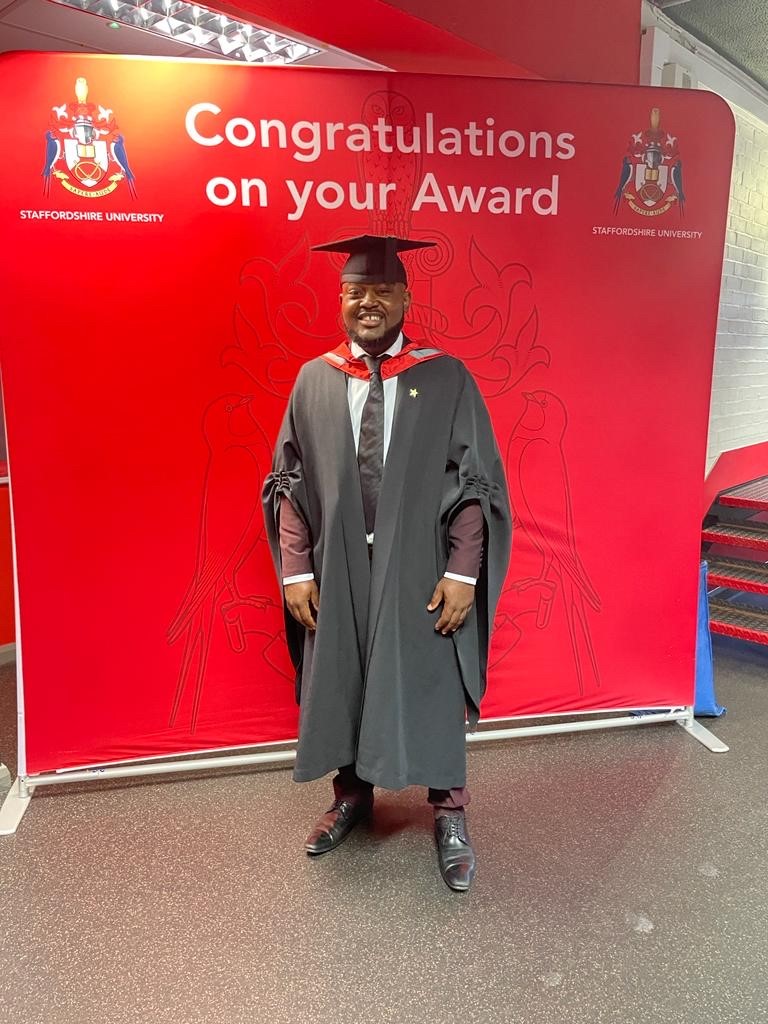
I plan on working on my specialist portfolio to see where that takes me.
Hands-on learning brings science to life: Hanan Perveen
Hanan Perveen joined Synnovis (formerly Viapath and now proudly part of SYNLAB) in 2017 as a Specimen Reception Assistant after deciding he no longer wanted to pursue a career in architecture.
Hanan was keen to learn, so with the support and encouragement of his training officer he began his degree studies at Staffordshire University on the first cohort of the Healthcare Science Apprenticeship in 2018.
I had started working in the laboratories after deciding I did not want to pursue a career in architecture, and quickly fell in love with the impact of the work being done here and the science behind it all. It felt that the work being done here was not only interesting, but morally satisfying as you played a key part in providing care for people that are unable to help themselves.
It was clear that the apprenticeship model would be far better than an isolated degree at university in helping Hanan establish a career in the science sector. For Hanan, the idea of learning the principles and theory while performing the tests carried out in the laboratories made more sense than learning the theory first at university.
Hanan’s Journey
The level of competition and the sheer number of university graduates having studied Biomedical Sciences is far larger than the number of trainee posts available. This can make it very difficult to progress beyond Associate Practitioner (Band 4) positions.
Having initially studied BA Architecture, I felt a little lost and overwhelmed with the limited options I had without a degree in this field.
Once the opportunity arose to take a up place on the apprenticeship scheme, and with the support of his training officer, Hanan was fortunate enough to be offered a place on the programme.
The process allowed Hanan to incorporate and apply his practical experience into his learning and work, meaning that he had a deeper, more robust understanding than a university graduate. This was highlighted when completing the IBMS trainee portfolio and research project, which were of a significantly higher standard than Hanan’s peers, due to working while studying and having the support of colleagues.
Support from SYNLAB
Hanan said: “Throughout the apprenticeship, I have received support from not only the university, but SYNLAB as well. Logistical and administrative challenges were expertly handled by the learning and development team, expenses for travel and accommodation were covered by Synnovis and SYNLAB, and opportunities for training and rotations were accommodated and approved quickly when required, which were integral for time-sensitive assignments and deadlines.”
Studying and working full time can be challenging, but the apprenticeship model makes allowances for this; providing candidates with time ‘off-bench’ to support their learning. Hanan received support from a Learning advisor who worked with Laboratory Managers to support him in managing his workload effectively.
| Top tips from Hanan: Establish a robust routine and realistic understanding of how much time you will need to dedicate at home to your completing your studies. Accept the support on offer and soak up as much knowledge as possible from your colleagues. |
My advice to others doing this or interested in doing this would be to understand that you will have to make some sacrifices here and there and it will be hard work, but as long as you are organised, establish a routine that works for you and are diligent, it is very doable.
So, what’s next…?
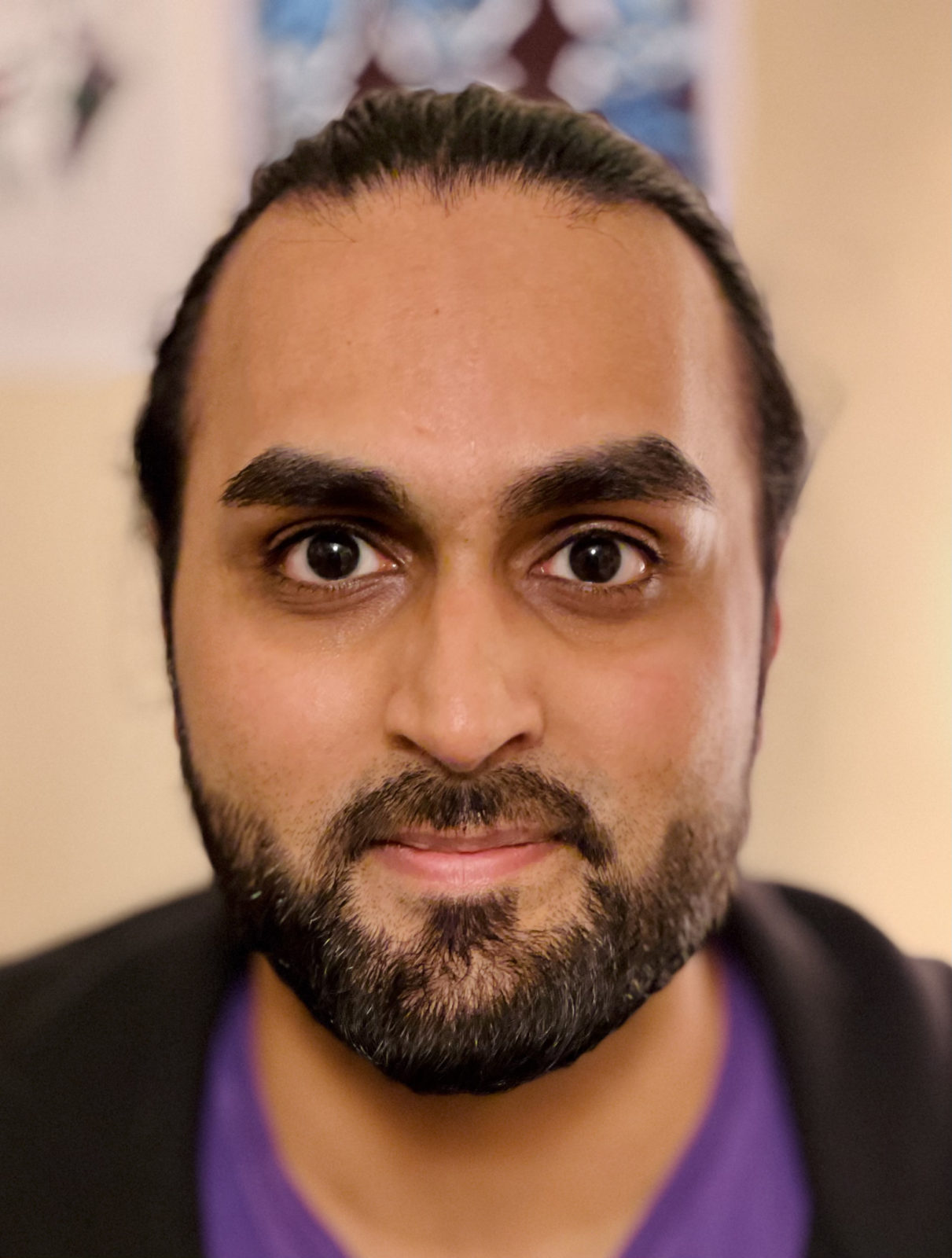
I am excited to start my career as a scientist firstly and, once I ground myself, I plan to continue my development and pursue my passion for learning. Most likely, this will include further studies and training. Currently, I am interested in research and translating research into the diagnostic setting, and highlighting and developing the association of the scientific and clinical aspects of healthcare.
Determination is the key to success: Leigh Gregg
A career in science was always on the cards for Leigh, but she had not committed to a particular field when she took up a part-time role at Pathology First – a SYNLAB partnership with the NHS to consolidate, transform and deliver pathology services to hospitals and GPs within Essex.
From here she progressed to the haematology department, found that she really enjoyed the challenge and wanted to pursue a career as a biomedical scientist (BMS).
Before embarking on her graduate apprenticeship course, Leigh was working as a Medical Laboratory Assistant and had recently been offered a promotion to Laboratory Technician. However, to maintain this career trajectory, Leigh would need an IBMS-approved BSc biomedical science degree.
Leigh had just completed a BSc degree in genetics and zoology, so knew that she had an aptitude for learning. She was determined not to let the lack of the required qualification hold her back from pursuing her scientific ambitions.
Leigh’s Journey
For Leigh, the synergy between studying and working during an apprenticeship was hugely beneficial. The practical experience and theoretical learning went hand in hand, helping her to successfully complete the course.
I have been able to relate a lot of what I have learned at university to my job in the laboratory. I gained a lot of knowledge through the apprenticeship that translates into my progress towards becoming a BMS.
Leigh chose a final year research project in transfusion, which not only met the academic criteria for the course but also allowed her to gain essential skills and knowledge to facilitate her progression as a BMS.
Although the course involved juggling work and study, and required a real dedication to striking the right balance, Leigh was not alone when facing such pressures.
Support from SYNLAB
Individuals who undertake the SYNLAB Graduate Apprenticeship Scheme receive support from the business on many levels. This support includes:
- Allocation of a training manager / mentor
- A commitment to providing 20% of work hours for studying, off-the-job learning and other development activities
- Support with practical skills in a laboratory setting
My work-based advisor/training manager has been fantastic over the last four years. She has gone above and beyond to help me wherever possible. She has given me the extra push to get work done when needed, especially with my HCPC registration portfolio. It has been a learning curve for both of us, as I was part of the first group of apprenticeships with IPP. I think it is incredibly important to have a training manager and line manager that fully support the apprenticeship programme and have a good understanding of the challenges that come with it.
| Top tips from Leigh: Plan your workload in advance, especially around key deadlines and course dates. Take each assignment and exam as they come – try not to let things overwhelm or get the better of you. |
It’s the people that I was directly working with that made my apprenticeship successful. My training manager, my manager when I first took on the apprenticeship and a lot of my colleagues that I work with have offered advice, words of encouragement or shared their knowledge to help me with exam preparation or assignments.
So, what’s next…?

It feels fantastic to have finished my degree. Getting fully trained as a BMS is my next goal and then I might look to complete the specialist portfolio, or even a Master’s degree.

